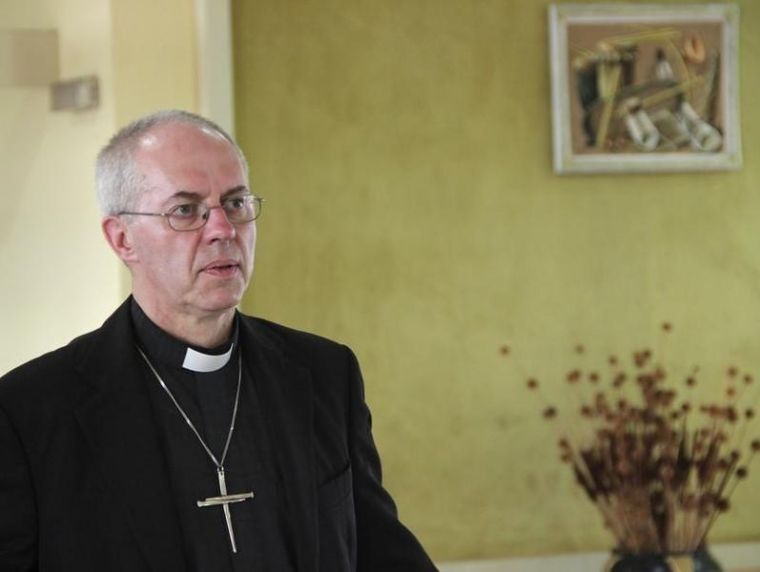Disagreements shouldn't be cause of hatred, says Archbishop ahead of Brexit vote

A 'new emphasis on forgiveness' can help Britain and Europe move forward from their current divisions, the Archbishop of Canterbury has said.
Writing in Prospect magazine ahead of Tuesday's crunch Brexit vote in the Commons, Archbishop Justin Welby said British society seemed to have arrived at a place where debate had spiralled into hate.
He said people needed to 'learn to forgive' those who disagree with them and not allow differences of opinion to create a 'pit of self-justification and contempt for others that in the end makes us regard them as less than human'.
'We need to learn to forgive. Especially we need to learn to forgive those who have the temerity, even the abusive intransigence, to disagree with us on something where we think we are right. That appears today to be a mortal sin,' he wrote.
'Disagreement should be a matter of debate, of rational examination of different views, even of passionate and robust argument.
'But it should not be a cause of hatred, the incitement of violence, and the denigration of the humanity of the other person.
'Yet, that is where we seem to have got to.'
Britain has become bitterly divided over its withdrawal from the European Union, with some calling for a second referendum.
On Tuesday, MPs will vote on the Government's Brexit deal, which if passed will come into effect on March 29. If the vote goes the other way, it may lead to a no-deal Brexit.
In the House of Lords this week, Archbishop Welby said those in power needed to offer a 'hopeful vision' for the nation and give thought to the process of reconciliation to heal societal rifts.
'It must reflect a genuinely hopeful vision for our nation and its place, because there is a hope and global influence, a vision of that, to be grasped in this country with proper leadership,' he said.
'Second, whichever way we go there is a requirement for national reconciliation, for restating what the noble Lord, Lord Sacks, calls core values of civilised discourse, and for ensuring they are lived out.'











